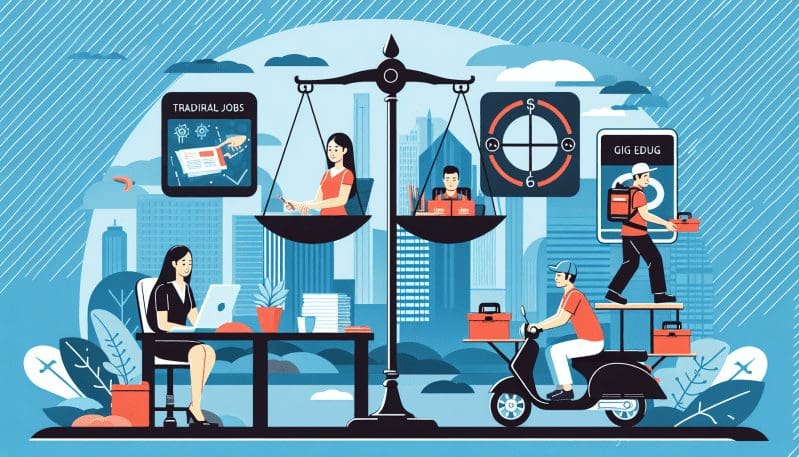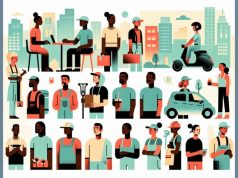As the traditional boundaries of the nine-to-five job continue to dissolve, the gig economy in New York and across the United States is expanding at an unprecedented pace. This seismic shift in the labor market, often characterized by temporary positions and independent contract work, has sparked a national conversation about the nature of work and the rights of workers. At the heart of this conversation are important questions about labor protections, benefits, and the legal status of those who power the gig economy: gig workers.
The gig economy is composed of diverse professions, from ride-share drivers and food delivery couriers to freelance writers and software developers. These roles offer a high degree of flexibility and autonomy but often come with a cost – an absence of the traditional safety nets afforded to full-time employees. Gig workers usually lack access to employer-sponsored health insurance, paid leave, and other benefits, and they are often excluded from protections like minimum wage laws and workers’ compensation.
The precarious nature of gig work is evident. Workers can find themselves at the mercy of fluctuating demand, unpredictable income, and the terms dictated by the platforms through which they find work. Despite their significant contributions to the economy, gig workers are often seen as peripheral in the eyes of the law.
One of the core legal issues surrounding gig work is the classification of gig workers. Are they employees entitled to benefits and protections under labor laws, or are they independent contractors responsible for their own business success? This debate has led to a patchwork of legislation and court rulings, with significant implications for gig workers and industry practices.
In New York, the debate intensified after the state’s highest court ruled that part-time couriers for a food delivery service were independent contractors, not employees. Similar rulings and legislative efforts across the country have sought to define the status of gig workers with mixed outcomes. California’s Proposition 22, for example, allowed companies like Uber and Lyft to continue classifying their drivers as independent contractors while providing them with some additional benefits.
What is clear is that the existing classifications of ’employee’ and ‘independent contractor’ may no longer fit the reality of the gig economy. There is growing acknowledgment that a new classification, with its own set of protections and standards, may be necessary to ensure fair treatment of gig workers.
Looking ahead, the legal landscape must adapt to the new realities of work. This could involve creating a ‘dependent contractor’ category, which acknowledges the dependent relationship between gig workers and the platforms they use while offering a measure of benefits and protections. Furthermore, legislation could mandate that platforms contribute to benefit funds for gig workers or ensure access to labor rights such as collective bargaining.
The rise of the gig economy in New York and beyond represents a new frontier of work – one that promises innovation and flexibility but also brings challenges to labor protections and workers’ rights. As lawmakers and courts grapple with these issues, it is imperative that the solutions crafted not only reflect the changing nature of work but also uphold the dignity and security of every worker. Fairness in the gig economy is possible, but it will require thoughtful legal changes that bridge the gap between traditional employment and the evolving world of work.




























